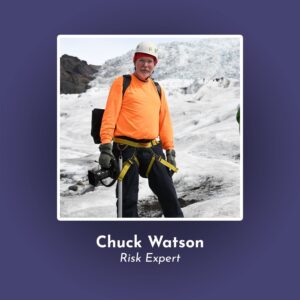
Show Summary
On this Special episode Nate speaks once again with risk expert Chuck Watson for a critical assessment of the unfolding situation around Israel which adds to the rapidly escalating dangers of our current geopolitical landscape. As tensions rise, the potential risks that geopolitical confrontation in the Middle East poses could spill over into energy, economic systems, and our social fabric – Chuck lends his deep expertise and decades of experience to shed light on these complex dynamics. How do our individual perspectives of where history begins influence who we see as “good” or “evil” and is it even possible to find an unbiased source of ‘truth’? What does Western diplomacy look like in a world no longer based on fear – and will the United States risk being stretched too thin trying to preserve the unipolar world of past generations? How do we even begin to navigate the minefield of geopolitical tensions that seem to be growing daily so as to maintain some sort of stability that avoids catastrophic outcomes in coming years?
About Chuck Watson
Chuck Watson has had a long career in military and intelligence work, with a specialty in natural and human made disaster modeling. He worked for the US Air Force, was an attache to US Ambassadors to the Middle East Robert McFarland, and Secretary of Defense Donald Rumsfeld as a Soviet expert. Chuck has worked as an advisor to the military for over four decades with a particular emphasis on big data, open source intelligence, with an emphasis on the Soviet Union and Russia. Chuck is also the founder and Director of Research and Development of Enki Holdings, LLC, which designs computer models for phenomena ranging from tropical cyclones (hurricanes) and other weather phenomena, earthquakes, and tsunamis, as well as anthropogenic hazards such as industrial accidents, terrorism, and weapons of mass destruction.
In French, we have a motto that says that a simple drawing is often better than a long explanation. Jean-Marc Jancovici Carbone 4 President
That’s very understandable because with left atmosphere thinking, one of the problems is that you see everything as a series of problems that must have solutions. Iain McGilchrist Neuroscientist and Philosopher
We can’t have hundreds and hundreds of real relationships that are healthy because that requires time and effort and full attention and awareness of being in real relationship and conversation with the other human. Nate Hagens Director of ISEOF
This is the crux of the whole problem. Individual parts of nature are more valuable than the biocomplexity of nature. Thomas Crowther Founder Restor
Show Notes & Links to Learn More
Download transcript00:00 – Chuck Watson Info, Part 1, Part 2, Frankly, Wars and Rumours of War, Chuck’s blog comments on the podcast
01:00 – ½-⅔ of remaining oil reserves are within ~800 miles of Israel
06:03 – History of relationship between Israel and Palestine
06:42 – McFarland, Rumsfeld, Habib
07:05 – There have been more [Correction: Children] casualties in the first 10 days between Hamas and Israel than in 2 years between Ukraine and Russia + Larry Johnson’s analysis
09:27 – Biden support of Israel and Arab leaders refused to meet with him
09:59 – Markets lack of response to geopolitical events
12:51 – Past Israeli wars
16:10 – BRICS, growing anti-west sentiment
18:25 – US relationship with dictators
18:38 – Bashar al-Assad
18:55 – Open slave markets in Libya
19:41 – TGS Daniel Schmachtenberger episodes
19:45 – Social media and geopolitics
21:01 – Missile and hospital explosion, analyis/recap by Larry Johnson + CNN counterpoint
28:09 – Putin speech where he calls the Soviet Union one of the largest catastrophe of the 20th century
30:19 – Collapse of the Ottoman Empire, World War 1 and Palestine
31:55 – Foreign Affairs article discussing the US as the World’s dominant power
32:35 – US Defense Budget is inefficient
36:20 – Decline of the peace movement and rise of using military power
36:52 – Wall Street Journal article outlining Iran involvement in Hamas actions
38:24 – Israeli nuclear weapons
39:31 – Pakistani nuclear weapons
43:23 – Risk Homeostasis
48:40 – Radiological event
49:39 – US redeploying forces to the middle east
51:53 – US depleted industrial base and reduced manufacturing capacity
53:41 – Archduke Ferdinand
55:50 – Two State Solution
57:53 – 2006 Lebanon War
58:45 – Saudi Sunni leadership talking with Shia Iran leadership
1:00:13 – Europe LNG dependence on the strait of Hormuz
1:03:30 – Living conditions of people in Gaza
1:11:43 – Nuclear war close calls averted by individual humans







